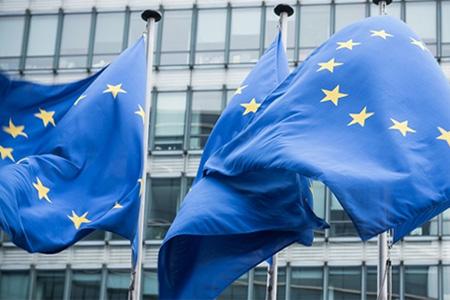
In 2021–2022, during the first years of the new EU Gender Action Plan (GAP III), the European Union committed €22.4 billion to contribute to building a more gender-equal world, finds a joint mid-term report by the European Commission and the European External Action Service on the implementation of the GAP III just published. The EU has supported partner countries and civil society in improving gender equality, with transformative outcomes, including women and girls' increased protection against gender-based violence, expanded participation in public and political life, greater access to education, health and social protection and economic empowerment, as part of a Team Europe approach.
In order to build on these achievements, the EU extends the duration of the Gender Action Plan from 2025 until 2027 towards a gender-equal world.
Three years of the Gender Action Plan
In many places around the world, the rights of women and girls have been threatened, reduced or completely eliminated – significantly pushing back important progress won over decades. Since its adoption in November 2020, the Gender Action Plan III has therefore placed human rights and empowerment, particularly for women and girls, at the forefront of the external agenda of the EU in line with the Sustainable Development Goals and other international commitments.
The percentage of new external actions with gender equality as a principal or significant objective has gone up from 64.71% in 2019, before the adoption of the GAP III, to 72% in 2022, in progress towards the target of 85% of by 2025. EU funding with gender equality and women's empowerment as policy objectives has increased from around €9 billion in 2021 to €13 billion in 2022. The Global Gateway strategy, published in December 2021, will further boost gender equality by integrating the GAP III objectives.
In 2022, gender equality was on the agenda of political, security and/or human rights dialogues between the EU and around 100 partner countries. With 33 countries, the dialogues focused exclusively on gender equality. In addition, EU Delegations have set up 131 country-level implementation plans adapting the Gender Action Plan to local context, enhancing the Team Europe approach of the EU and its Member States.
At global level, the EU and its Member States have partnered with and driven resolutions at the United Nations to combat violence against women, contribute to the Commission on the Status of Women, increase political and civic participation of women and girls, boost support to women rights' organisations and promote gender perspectives in climate and digital decision-making. Against the backdrop of alarming security and conflict shifts and geopolitical power competitions, the implementation of Women, Peace and Security agenda and the commitment to mainstream gender perspective in responding effectively to these security threats is ever more important.
Background
The Gender Action Plan is the EU's ambitious strategy for contributing to the Sustainable Development Goals (SDGs), in particular SDG5, accelerating progress on gender equality and women's empowerment as a priority of all EU external policies and actions, including as a focus of the Global Gateway strategy. It seeks to empower women and girls in all their diversity to participate and lead equally in social, economic, political life, and to have a say in all decision making, in all public and private spheres.
In a challenging global context, the EU recommits itself to the political and policy objectives of the Gender Action Plan and will strengthen its impact further by extending its duration from the originally foreseen 2021–2025 until the end of the current multiannual financial framework in 2027.
The EU will continue to enhance gender mainstreaming, increasing gender-targeted actions and funding, and ensuring a gender-responsible review process of all Global Gateway and Team Europe initiatives. Gender analysis and data collection are vital for targeted policies and result monitoring. The EU will also continue to step up efforts to ensure that EU-funded humanitarian aid adequately addresses the needs of women, girls, men, and boys.
For More Information
Gender Action Plan stories of change | Capacity4dev (europa.eu)
EU and UN Women to boost women's rights coalitions on ending violence against women (europa.eu)
EU and Latin America and the Caribbean (europa.eu)
Investing in Young Businesses in Africa (europa.eu)
Sexual and Reproductive Health and Rights in Africa (europa.eu)
Gender for Development in Uganda
Quote(s)
GAP III has played a crucial role in making gender equality a strategic priority in the EU’s external action. It has helped to increase initiatives and funding for women’s and girls’ empowerment as an essential driver for change. We are aware of the challenges ahead of us, and remain fully committed to continue on this path towards a more equitable and inclusive future.
High Representative/Vice-President Josep Borrell
I am proud that the EU’s ambitious Gender Action Plan is contributing to curbing inequalities and empowering women and girls in all their diversity. We aim at sustaining our political engagement and the amount and effectiveness of funding for gender equality, extending the implementation period until the end of 2027, aligning its duration with the EU’s multiannual financial framework. The EU invests in a gender-equal world and integrates this ambitious objective in the Global Gateway strategy.
Jutta Urpilainen, Commissioner for International Partnerships
Details
- Publication date
- 21 November 2023
- Author
- Directorate-General for Neighbourhood and Enlargement Negotiations
